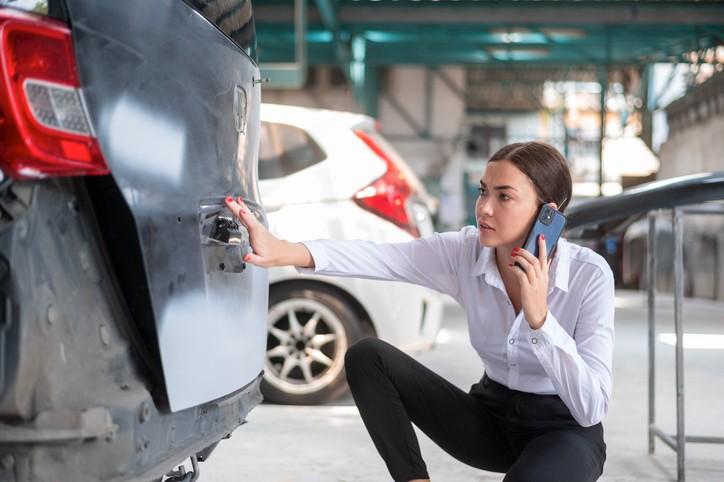When you are driving down the streets of Boston or cruising along the Massachusetts Turnpike, the last thing you want is to find yourself in a rear-end collision. While these accidents are common, they are often misunderstood. Many people believe the driver who rear-ends another car is always at fault. But is this really true in Massachusetts? Our team at Altman Nussbaum Shunnarah provides the answers.

The General Rule Regarding Rear-End Collisions
In most cases, it is true that the driver who hits the other car from the back is considered at fault. This stems from the basic rule of safe driving, which says to always maintain a safe following distance. When you are behind the wheel, you should leave enough space between your car and the one in front of you to stop safely if they brake suddenly.
Massachusetts law requires drivers to follow at a “reasonable and proper” distance. This means you should be able to stop without colliding with the vehicle ahead, even if it comes to a sudden halt. When a driver fails to do this and rear-ends another car, they are usually deemed responsible for the crash.
Exceptions to the Rule
As with many aspects of law, there are exceptions to this rule. Let us explore some situations where the rear-ending driver might not be entirely at fault.
- Sudden Lane Changes
You’re driving along, maintaining a safe distance from the car in front of you. Suddenly, another vehicle cuts in front of you without warning, leaving you no time to brake. In this scenario, the driver who changed lanes abruptly might share some or all of the blame for the collision.
- Brake Check Incidents
Sometimes, an aggressive driver might intentionally slam on their brakes to “teach a lesson” to the car behind them. This dangerous practice, known as a brake check, can easily lead to a rear-end collision. If you can prove that the driver in front deliberately caused the accident, they may be held responsible.
- Broken Brake Lights
Functioning brake lights are crucial for road safety. They warn drivers behind you that you’re slowing down or stopping. If a car’s brake lights aren’t working, and this leads to a rear-end collision, the front driver might share some fault for the accident.
- Multi-Car Pile-Ups
In chain-reaction crashes involving multiple vehicles, determining fault can be complex. If Car A rear-ends Car B, pushing it into Car C, the driver of Car A might be responsible for both collisions. However, if Car B rear-ended Car C first, and then Car A hit Car B, the fault might be shared differently.
- Hazardous Road Conditions
Massachusetts weather can be unpredictable, with sudden snowstorms or icy roads creating hazardous driving conditions. While drivers are expected to adjust their speed and follow the distance for the weather, extremely severe conditions might sometimes be considered a factor in determining fault.
Comparative Negligence in Massachusetts
Massachusetts uses a “modified comparative negligence” system. This applies to all accidents, including rear-end collisions, allowing fault to be shared between parties. Each driver gets assigned a percentage of fault based on their pre-crash actions.
In Massachusetts, you can still recover damages even if you are partially at fault for an accident. However, your compensation will be lowered by your involvement in the accident. For example, if you are found to be 20% at fault, you can still recover 80% of the damages.
But there’s a catch. If you are found to be more than 50% at fault, you cannot recover any damages. This is why it is crucial to have strong evidence and skilled legal representation when dealing with accident claims.
The Importance of Legal Representation
Given the difficulties of determining fault in rear-end collisions, it is wise to seek legal advice if you are involved in such an accident. At Altman Nussbaum Shunnarah, we have extensive experience handling these types of cases. We understand Massachusetts traffic laws and how to build a strong case to protect your rights.
Our attorneys can help you gather and preserve evidence, deal with insurance companies, and, if necessary, represent you in court. We will work tirelessly to ensure that fault is accurately determined and that you receive the compensation you deserve.
Seek Legal Help
While it is often true that the rear driver is at fault in a rear-end collision, the reality is more complex. Each accident is unique, and various factors can influence who is held responsible. If you find yourself involved in a rear-end collision in Massachusetts, get in touch with us at Altman Nussbaum Shunnarah.




